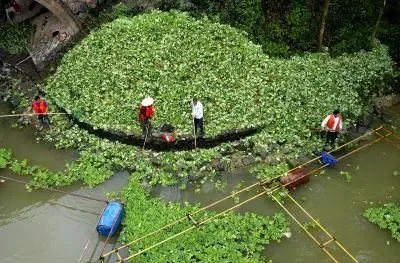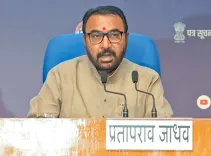How Are Kerala’s Malappuram Panchayats Tackling Rat Fever?

Synopsis
Key Takeaways
- Health surveillance is crucial in detecting outbreaks early.
- Doxycycline distribution targets high-risk populations.
- Avoiding stagnant water is essential for prevention.
- Community education campaigns play a vital role.
- Seek immediate medical care at the first sign of symptoms.
Thiruvananthapuram, Aug 31 (NationPress) The district panchayats of Malappuram in Kerala have intensified their health monitoring and preventive measures in response to alarming reports of rat fever and amoebic meningoencephalitis in Peruvalloor and Moonniyoor, respectively.
In Peruvalloor, the health standing committee has made the decision to distribute doxycycline tablets to individuals working in high-risk environments such as paddy fields, muddy terrains, and waterbodies where rat urine may contaminate water. This action follows the unfortunate death of Karuvathadam Bhaskaran from rat fever recently, with two additional individuals currently receiving treatment.
The panchayat has identified MGNREGA workers, farmers, cattle rearers, and coconut climbers as particularly vulnerable groups. Awareness initiatives will be conducted through loudspeaker announcements and posted notices.
Residents have been advised to steer clear of stagnant and polluted water sources, while chlorination efforts will be implemented in all wells. People are encouraged to keep food items securely covered and to maintain clean surroundings to deter rats.
Health officials have warned that symptoms like high fever, muscle pain, vomiting, and headaches should not be overlooked.
“Prompt medical attention is crucial. Self-treatment could exacerbate the situation,” the committee emphasized.
The meeting was presided over by panchayat president K. Abdul Salam and included participation from medical officer Dr Anas, implementation officer Dr. Muhammad Rasi, health inspector Laiju Ignatius, and other officials.
Simultaneously, the Moonniyoor panchayat has issued a health alert following reported cases of amoebic meningoencephalitis. This rare but serious infection, caused by an amoeba present in contaminated water, has led the local health committee to enhance precautionary measures.
A special meeting chaired by panchayat president N.M. Suharabi resolved to chlorinate all wells, erect warning signs near ponds and public water sources, and distribute notices outlining health guidelines to local households.
Residents have been cautioned against bathing or swimming in stagnant ponds and are advised to ensure water safety in their daily routines.
Vice-president Haneef Achattil, medical officer Dr Rafeeq Pullatt, health inspector A. Rajesh, and other committee members were present at the meeting.
Officials stated that educating the public is vital for preventing further cases. Both panchayats are urging residents to remain alert, adopt safe hygiene practices, and seek immediate medical attention if symptoms arise.









